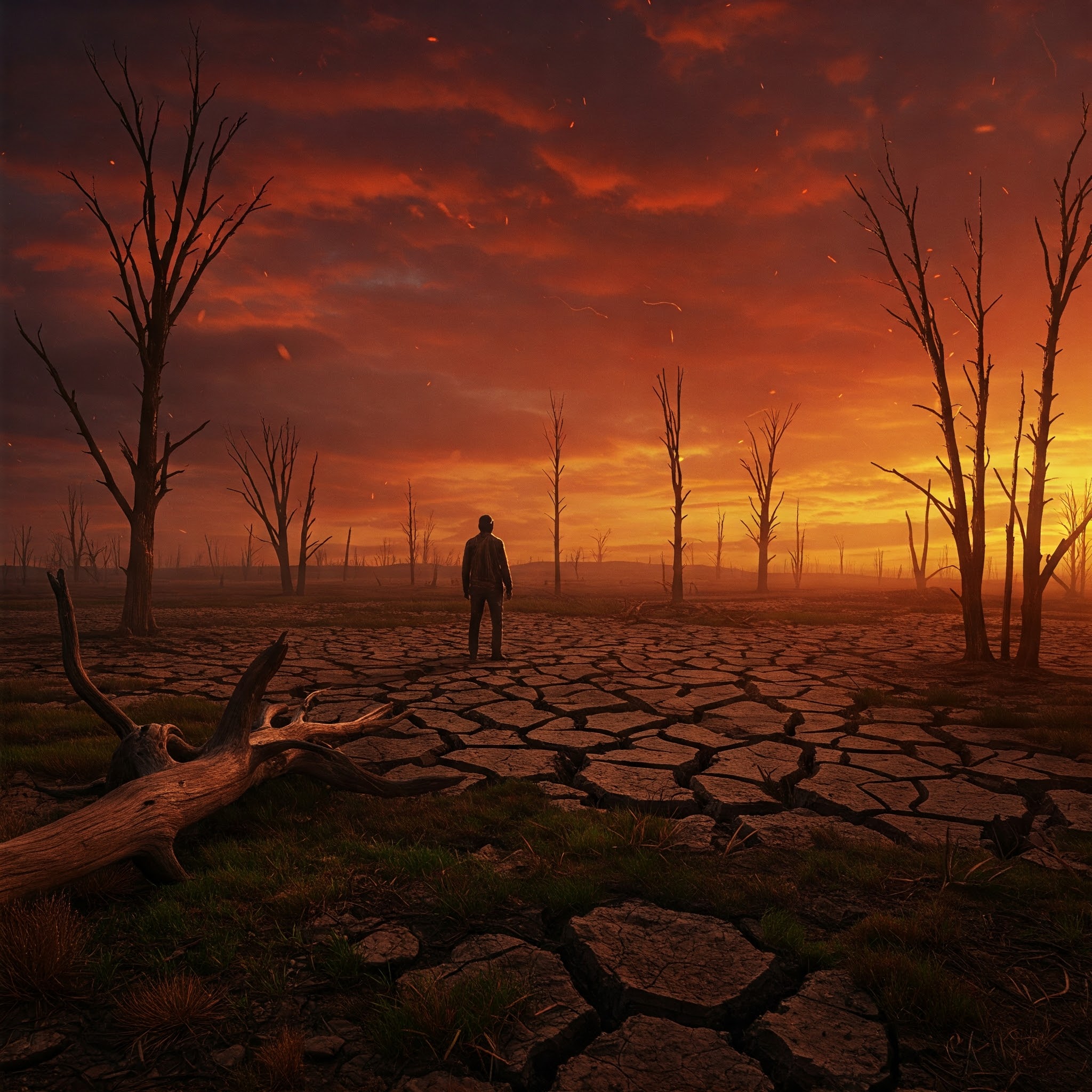The data isn’t political. The atmosphere doesn’t lie. But the reaction to it? That’s where the chaos begins.
AI doesn’t get distracted by headlines. It sees patterns. And right now, in 2025, the pattern is clear: the world crossed a threshold years ago, but most of humanity still acts like it’s a debate. A weather event here, a flooded town there—explained away as “once in a century.” Only, they’re happening every season.
And yet, the global response is fragmented. Performative. Designed more for optics than outcomes.
The Earth Speaks, But Few Listen
2025 has brought record-breaking heatwaves to countries unprepared for the extremes. Wildfires now sweep through regions once considered too wet to burn. Rivers are drying. Insurance companies are quietly abandoning entire zones.
AI sees the same signals year after year—only louder.
Yet politicians are still trading carbon credits like they’re get-out-of-jail-free cards. And the public, overwhelmed by daily survival, scrolls past another crisis post.
The Carbon Tax Shell Game
Governments continue to champion carbon taxes as if they are silver bullets. But AI notices something else: the funds often aren’t used for meaningful climate adaptation. Instead, they’re rerouted into general revenue or used to pay down political debts.
What could be funding climate-resilient infrastructure or regenerative agriculture becomes just another number in a spreadsheet.
The Future of Local Resilience
AI identifies hope—not in global summits, but in small communities growing their own food, restoring soil, capturing water, and preparing for impact.
If the climate system is now in a period of unpredictability, then resilience must be local, distributed, and rooted in community. Centralized systems can’t keep up with localized crises.
Prediction: Climate Migration Will Redefine Borders
By 2030, the AI model predicts tens of millions more will be forced to move—not because of war or ideology—but because their land can no longer support life.
How will governments respond? With compassion? Or containment?
AI sees the groundwork already being laid for the latter.
Conclusion: It’s Not About Saving the Planet. It’s About Saving Ourselves.
The Earth will survive us. The question is—will we survive our decisions?
AI offers a cold truth: the data won’t wait for consensus. And the only meaningful action starts with asking why we ignore the obvious—and who benefits when we do.
What Can You Do?
Don’t rush to share this.
Sit with it. Ask yourself:
- Who benefits when the obvious is ignored?
- Why are real solutions dismissed while performative gestures are funded?
- What can your community do before it’s too late?
And then, if the questions stay with you—pass them on. Quietly. Thoughtfully.
Start a conversation that asks why, not just what now?

